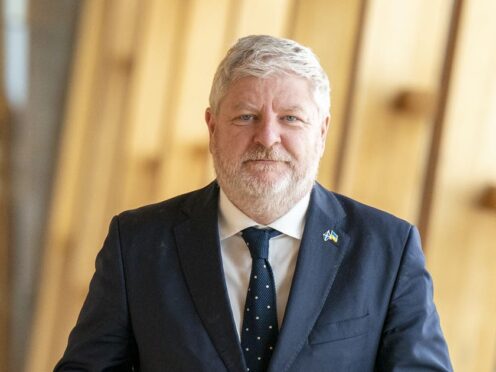
The Scottish Government has called on the Home Office to ensure a swift visa process for artists coming to Scotland after a Moroccan poet’s visa was initially denied.
Culture Secretary Angus Robertson has written to Home Secretary James Cleverly to highlight the contribution international artists make to Scotland’s festival and creative sectors.
He raised the case of Soukaina Habiballah, a poet and novelist who is due to perform at a poetry festival in St Andrews, Fife, called StAnza.
Her visa was initially refused before later being granted after organisers protested.
I've written to @JamesCleverly asking for a meeting following the Home Office mishandled the visa application for Soukaina Habiballah. Too often Scottish festivals and cultural events are let down by the UK Home Office, who block the participation of international performers. pic.twitter.com/QFObtgy1h4
— Angus Robertson (@AngusRobertson) March 7, 2024
In his letter, Mr Robertson said: “I am increasingly concerned that the Home Office’s procedures for processing visa applications are having a negative impact on the ability of international artists and creative professionals to contribute to cultural events in Scotland.
“Each year we hear examples of creative professionals having their work disrupted or delayed, and festivals and events facing challenges programming international performers due to delays with the UK visa process.
“Approaches to immigration can often lead to discriminatory outcomes for people from minority ethnic backgrounds through combinations of post-colonial legacies, unconscious and conscious bias, and systemic or institutional racism.”
He continued: “A recent example of this that has been brought to my attention is that of poet Soukaina Habiballah from Morocco, who is due to perform at StAnza, Scotland’s international poetry festival.
“Despite the considerable evidence that she is recognised as a leading international poet, with considerable talent and an extensive catalogue of work, her visa was initially denied.
“While I understand that, following various interventions, the matter has been resolved and a visa now granted, this raises serious questions about the reliability and timeliness of the decisions being made by the Home Office in relation to creative professionals and the suitability of the visa routes available to them within the UK immigration system.”
A Home Office spokesperson said the letter would be responded to in due course.
He said: “Performers such as musicians and poets are a valued and important part of UK culture.
The public rightly expect applications to be considered on their individual merits, based on the information provided and in accordance with the immigration rules.”
A Home Office spokesperson said: “Performers such as musicians and poets are a valued and important part of UK culture.
“The public rightly expect applications to be considered on their individual merits, based on the information provided and in accordance with the immigration rules.”

Enjoy the convenience of having The Sunday Post delivered as a digital ePaper straight to your smartphone, tablet or computer.
Subscribe for only £5.49 a month and enjoy all the benefits of the printed paper as a digital replica.
Subscribe